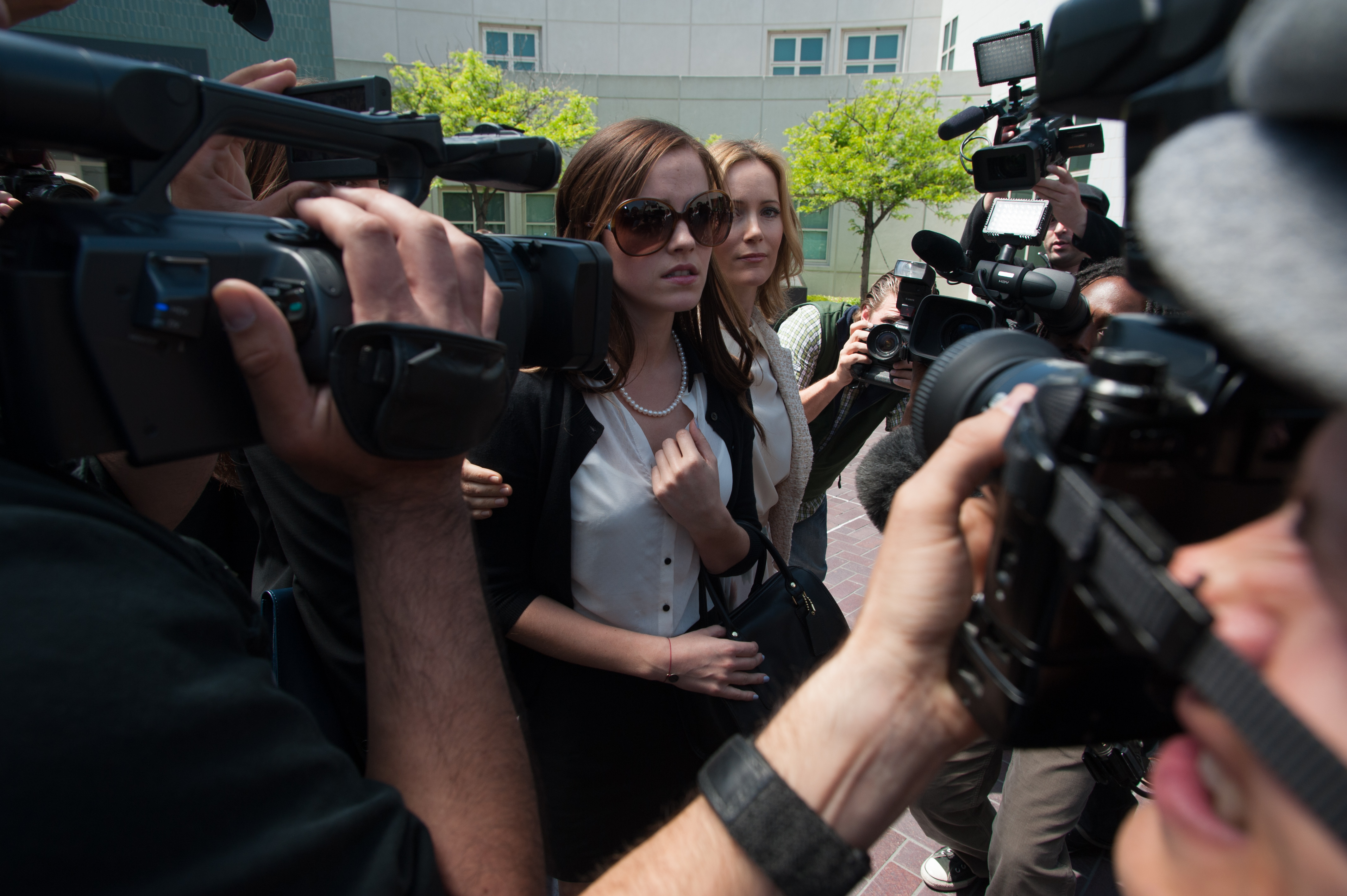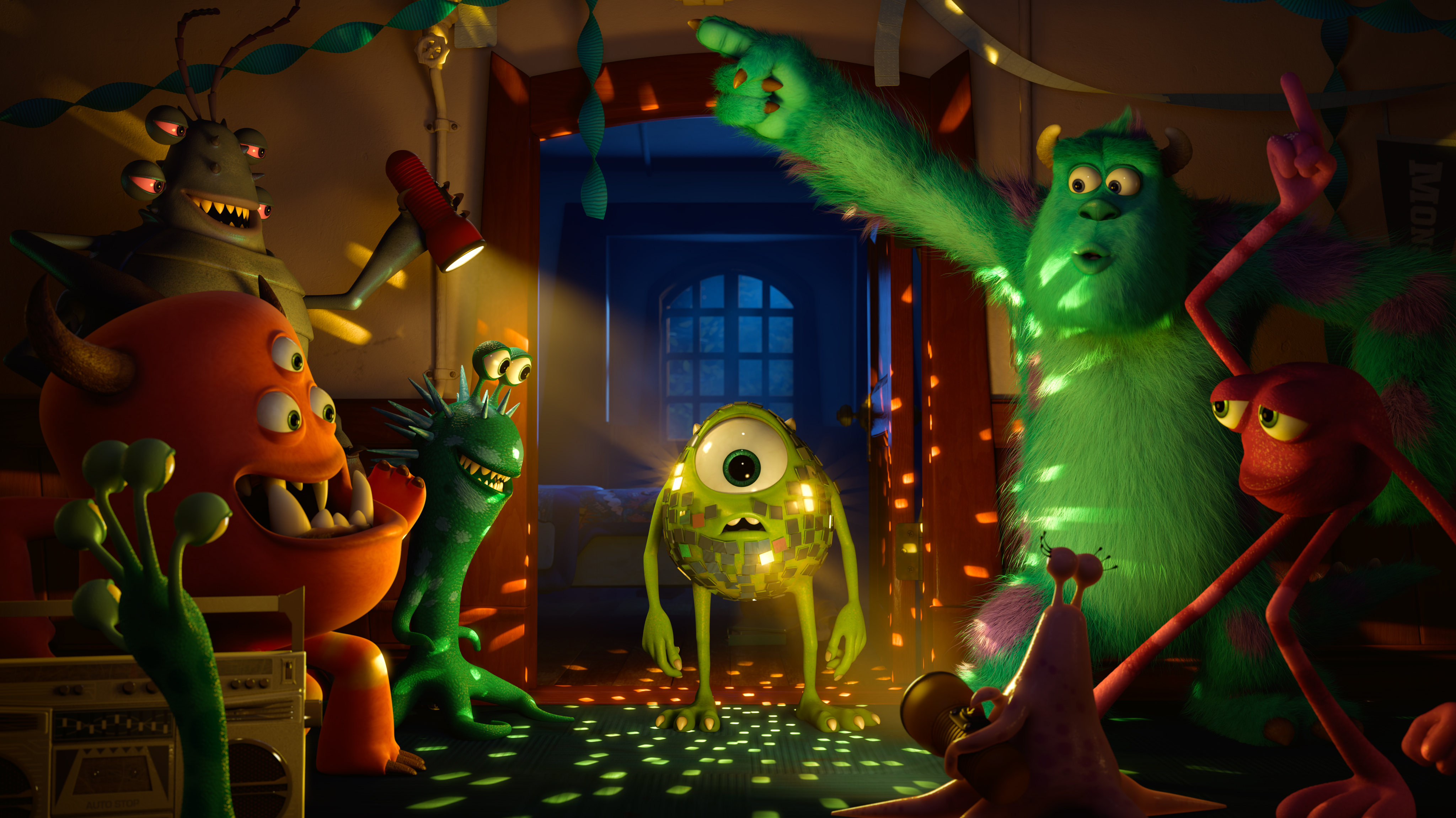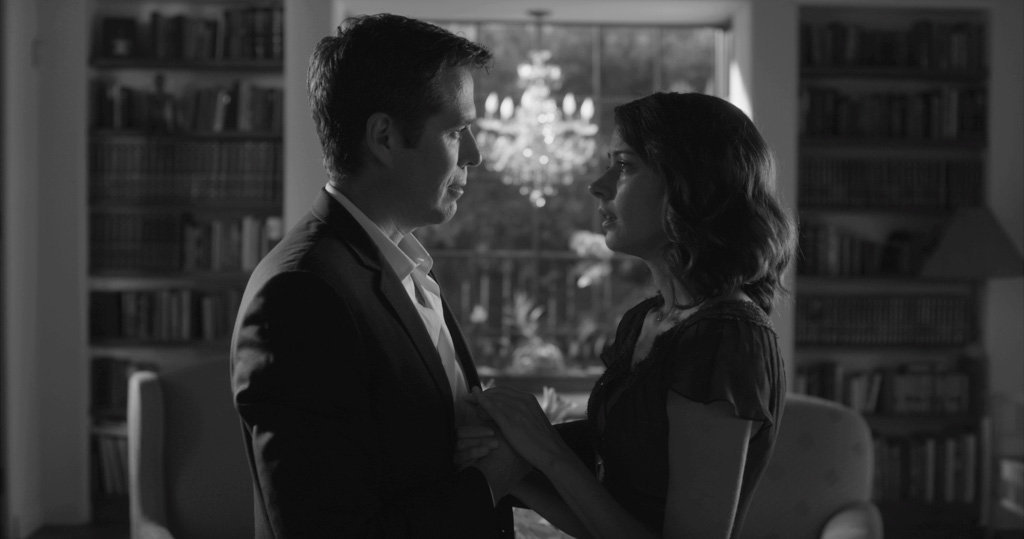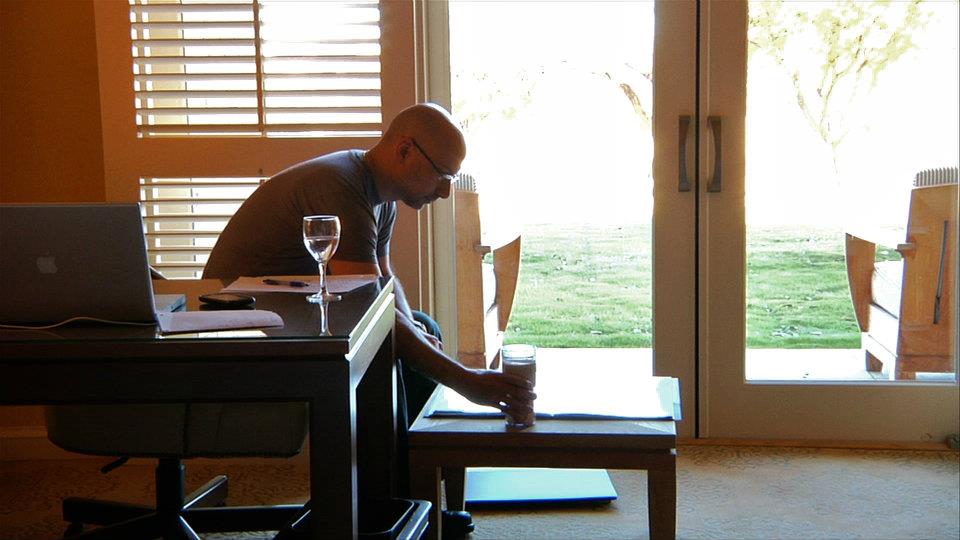The Bling Ring
Opens Fri., June 21 at Guild 45th and other theaters. Rated R. 87 minutes.
If we lived in the days when directors cranked out a couple of titles a year—or even one per annum—then it might be less dispiriting to report that The Bling Ring is Sofia Coppola’s latest movie. But Coppola has made just three features since Lost in Translation, her 2003 breakthrough, poking along through the period frou-frou of Marie Antoinette and the art-movie lethargy of Somewhere. She’s in her early 40s now, and somehow ought to be past The Bling Ring.
But here it is. And it’s not a terrible movie, exactly. It’s even fun at times. Certainly the real-life case of teenagers who robbed the houses of L.A.’s most vacuous stars must have sounded ripe for a satirical spin around the block. The youthful thieves went on their spree in 2008–09, and their targets included Paris Hilton, Lindsay Lohan, and Orlando Bloom. One senses Coppola’s interest is especially piqued by the inanity of these victims: The robbers couldn’t even pick cool dumb celebrities, just dumb dumb celebrities.
The crime spree, which comes across as more a symptom of Friday-night boredom than greed, grows naturally from the friendship of sociopathic Rebecca (Katie Chang) and easily led gay kid Marc (Israel Broussard). They execute the burglaries by Googling the busy schedules of fave celebs, which makes locating their empty houses easy enough. Their equally vapid friends, Nicki (Emma Watson), Sam (Taissa Farmiga, sister of Vera), and Chloe (Claire Julien), join the nocturnal prowls. More giggly pranks than criminal exercises, these break-ins qualify as “something to do” for idle, privileged teens.
Paris Hilton is in the movie (and her actual house is used as a location), so Coppola is dipping us right into the celebrity sauce without overt editorializing. I suppose this neutral stance is meant to distance The Bling Ring from finger-shaking 1950s films about these kids today with their crazy rock and roll. Although if Coppola really wanted to take a radical position, she might try to get us in the skin of these mall-going, designer-obsessed nitwits. Casting Harry Potter’s Watson is another insider touch, and her quick, snide delivery pays off. None of it exactly becomes satire, except for the barbs aimed at a dippy mom (Leslie Mann) home-schooling her children according to the wisdom of The Secret.
So the kids are not all right, and Sofia Coppola wants you to know that—even if it already seemed obvious from the news story itself. Coppola doesn’t add much to the headlines beyond some impressively trendy music and enough gaudy fashion to suggest that a new Roman Empire may indeed be collapsing under its own bad taste. Robert Horton
Fill the Void
Opens Fri., June 21 at Seven Gables. Rated PG. 90 minutes.
Much of Fill the Void plays out in warmly lit close-ups against backgrounds soft and fuzzy. The style conveys the intimacy of the situation, but also the isolated, unto-itself world where the movie takes place: a strict Orthodox sect in present-day Tel Aviv. The rules of behavior within this community are old, inflexible, and ruled by men. For filmmaker Rama Burshtein—herself a member of Israel’s Haredi community—the film’s achievement is to suggest, with great delicacy, how an 18-year-old woman might carve out a tiny space for the unlikely possibility of getting what she wants. Sort of.
That doesn’t come across as a triumph, but it is an evocatively rendered process. The 18-year-old is Shira (the excellent Hadas Yaron), who modestly hopes for a satisfactory arranged marriage to an awkward but likable boy her age. Disaster strikes as her older sister dies in childbirth, leaving behind a grieving husband (Yiftach Klein) and a baby. Custom demands he remarry soon, and Shira becomes a candidate—not so much because she or the new widower desire it, but because Shira’s mother (Irit Sheleg) can’t allow the family to break up.
These practical maneuvers are as ritualized as an ancient religious ceremony or a Jane Austen plot, and they are fascinating and sometimes devastating to watch. The small facets of this world are flavorful—for example, a rabbi doling out wads of U.S. dollars to the faithful as a way of tiding them over a financial rough patch. If an outsider were giving us this story, it might play more as criticism, but Burshtein’s calm hand is showing us this community rather than telling us what to think about it. This complicates our connection to Shira. It would be easy to feel outrage if the film were condemning this antiquated system (the terrific 2001 Israeli film Late Marriage comes closer to that tone), but Shira gains layers of complexity because she isn’t trying to rebel against the arrangement. Instead, she’s truly concerned about what’s best for her family, her faith, and herself.
Of course, you may choose to feel outraged anyway, an understandable reaction. Fill the Void carries a glowing vibrancy while you’re watching it—those burnished close-ups do create an effect—but something troubling lingers in the aftermath. Robert Horton
Monsters University
Opens Fri., June 21 at Ark Lodge and other theaters. Rated G. 103 minutes.
Every once in a while it’s nice to be able to declare a sequel superior to the original—even if the movie in question is technically a prequel. So let’s tip the mortarboard in the direction of this smoothly tailored Pixar offering. I realize the 2001 Monsters, Inc. is on repeat play in many family households, and it’s a funny movie. But it’s the weakest of the early Pixar classics, jokier and more mechanical than the likes of Toy Story and Finding Nemo.
The prequel covers the college years of Mike (voiced by Billy Crystal) and Sully (John Goodman), who live in the monster world and would very much like to become “scarers,” the creatures whose job it is to sneak out of children’s closets and frighten the little darlings into screaming in the night. (You will recall that these screams are responsible for generating the world’s energy.) Mike, the little green beach-ball Cyclops, is woefully unscary, but he’s dedicated to learning the craft. Sully, the big blue Sasquatch, comes from a celebrated family of scarers, and is more interested in being the BMOC than in studying in class. The two don’t like each other. But they’re going to have to work something out, because mean Dean Hardscrabble—Helen Mirren, whose British-schoolmarm presence only enhances the movie’s whiff of Harry Potter—has it in for them.
This makes for a typically endearing Pixar story arc, which—though it resolves in ways that are hardly astonishing—does offer a few surprises. Long past college age, Crystal and Goodman do their familiar vocal mannerisms; funnier still is the galaxy of supporting monsters, especially the hopelessly nerdy crew at Monster U’s least desirable fraternity. The design stuff isn’t all that outrageous (this is a G-rated film, so there are no truly scary monsters), but the gags and character quirks are delectable, especially among MU’s have-nots. Director Dan Scanlon, a Pixar vet helming his first big animated film, keeps it going at top speed. And yeah, it’s still more mechanical than Pixar’s work in heart-melting Toy Story mode, but the studio at its best is about details, and these details are right on.
Speaking of details: In the early days of computer animation, certain bugaboos always meant photorealism would be impossible: depicting water, for instance, and hair. If Monsters U is any indication, we may be close to the impossible, because even those problem cases look mind-bogglingly real. Whether photorealism should be a goal for animated films is a subject that can wait another semester. Robert Horton
Much Ado About Nothing
Opens Fri., June 21 at Harvard Exit and other theaters. Rated PG-13. 113 minutes.
Summer is the time for Shakespeare in the park, and Joss Whedon’s enjoyably playful comedy is staged in the yard and interiors of his Hollywood home. It’s a very nice house, paid for with all that Buffy and Avengers money, and it’s a plausible Italian castle in this modern-dress, black-and-white adaptation. Much Ado isn’t a vanity project, since Whedon’s cast members are all pros from television. Still, it has the feel of a weekend-home amateur theatrical, with everyone straining to put on a jolly good show and prove their appreciation for the Bard in his original language. Look! There’s Nathan Fillion as the buffoonish captain of the guard, Dogberry! When did he last deliver lines in iambic pentameter—high school? Still, he heaves his shoulders and has fun with his thick-headed part.
As the quarrelsome lovers Beatrice and Benedick, Alexis Denisof and Amy Acker have a better grasp of the language, but their careful syllables don’t always match the sense of the words. Back in ’93, the Americans stood out for the same unfortunate reason among Kenneth Branagh’s mostly British Much Ado cast—poor command of the text. Absent that, there’s a lot of clowning and eye-rolling here that matches the contemporary mood. The tone is light until the overwrought melodrama of Hero and Claudio’s first (failed) wedding ceremony. Hero’s impugned virtue and faked death are treated like tragedies instead of comic misunderstandings during a long, drunken weekend’s festivities.
Clark Gregg probably achieves the best balance of modern acting and Elizabethan verse as Leonato, the weekend’s host and Beatrice’s uncle. For all Acker’s charm, however, she still feels constrained by the old language—her feelings not quite fluent. Prone to mugging and bluster, Denisof struggles with Benedick’s soliloquies, which Whedon ought to have cut to match his movie’s breezy modern tailoring. Besides the cell phones and Prada suits, more liberties should’ve been taken. Brian Miller
An Oversimplification
of Her Beauty
Runs Fri., June 21–Thurs., June 27 at Grand Illusion. Not rated. 89 minutes.
Handmade, unique, and somewhat unclassifiable, Terence Nance’s debut feature is a film about a film about a real relationship: his, with fellow Brooklyn bohemian Namik Minter. The whole project’s related in retrospect via dense, accusatory, second-person voiceover, which dissects that failed relationship in terms that can only be called Godardian. This ought to make the movie insufferable, but instead it’s rather charming—if you can accept its solipsistic, reading-from-my-diary quality.
How Would You Feel? is the first film Nance made about his crush object. Following that is a partially realized film, Subtext, that Minter made in response. “None of this is like me,” she protests of her prior representation. Then, several years after the two split, Minter goes back to re-edit everything together—essentially the story of how he got “friend-zoned,” which is what we’re watching now. None of the footage has sync-sound, one reason for the constant, verbose voiceover. “You have been making this movie for so long that you are starting to forget how you felt,” the narrator warns Nance.
All this relentless commentary is not a little pretentious, but the sheer artsy-fartsiness of it probably reflects where Nance’s head was at as a younger man. In way, you could compare An Oversimplification to Before Midnight, with another cute, overeducated couple at its core. Or, more accurately, Minter is like Ethan Hawke’s Jesse in Before Sunrise way back when: a young artist full of himself, full of romantic yearnings, yet unsure how to check his ego and win the girl. Full of animation and music, narrative loops and digressions, An Oversimplification is far from white mumblecore movies, far from Spike Lee. It’s an entirely sincere, overstuffed melange that, Minter tells the director, is “all about you,” all about his flawed, romantic, admiring perception of her. And that, friend-zoned or no, is not something Nance ever disputes. Brian Miller
Paradise: Love
Opens Fri., June 21 at SIFF Cinema Uptown. Not rated. 120 minutes.
The first film in Ulrich Seidl’s trilogy (all recently seen during SIFF), Paradise: Love flips the usual script of sex tourism. Like Charlotte Rampling’s character in Heading South, the Austrian Teresa (Margarete Tiesel) travels to a sunny beach in the Third World, where young, poor, brown-skinned gigolos are available for pennies. Unlike Rampling, however, Tiesel is not a tall, striking, in-command woman of a certain age. Her Teresa is a dumpy 50-year-old special-ed teacher, no husband in sight, with a chubby, resentful teen daughter she sends to a fat camp during her Kenyan vacation. (This becomes Paradise: Hope; Teresa’s Catholic-fanatic sister is the subject of Paradise: Faith.) When Teresa strips naked, and there is a lot of frontal nudity here, she sadly tells a rent boy of her sagging flesh, “Everything goes down.”
Down indeed. Having started in documentaries, then moved to coldly clinical features (Dog Days, Import/Export), Seidl has no use for cheerful, uplifting cinema. Teresa arrives at the Mombasa resort as a naif. “In Africa, love is forever,” she tells her female travel companions. “They accept you for who you are.” And who are these corpulent white women? ATMs for the well-muscled local hustlers. And after sex comes the sob story. My sister’s kid needs money for an operation, says one guy. “There is no Medicare?” Teresa asks incredulously, then reaches for her wallet. She’s a little bit racist (“They all look the same”), but also sad, desperate, and lonely. Back in Austria, a fat, middle-aged woman has no power over men. In Kenya, she’s as powerful as her fat purse.
Teresa initially buys into the transactional fantasy romance offered by the dreadlocked Munga (Peter Kazungu, an actual beach hustler), but she gradually wises up. There are moments of grace, as when she dozes like Venus beneath purple mosquito netting, but Seidl never grants her much respect. Often framed from behind, Teresa resolutely waddles along the beach in her bikini. She’s not exactly an evil neocolonial predator, since the men are getting exactly what they want—money, though it’s never enough. They’ll never be able to fly back to Fortress Europe with Teresa. Still, she’s not the villain of the piece. Seidl co-wrote the entire Paradise trilogy with his wife, Veronika Franz, and Teresa is given a kind of bruised dignity. To her Austrian cohort, she says she wants to be seen “as a person, and not just a body.” All women can relate to that—and maybe some men, no matter who’s paying. Brian Miller
PSOMM
Opens Fri., June 21 at SIFF Film Center. Not rated. 93 minutes.
Reality TV and competition docs—Spellbound, Kings of Pastry, etc.—set the familiar structure for this backstage tale of four guys preparing to take the grueling master sommelier exam, basically a cram-course Ph.D. in wine. Director Jason Wise was a friend of bartender Brian McClintic, who gave him total access over three years. The other three candidates are Dustin Wilson, Ian Cauble, and DLynn Proctor—a rare black face in the cheerfully snobby and competitive grape game. Brian, Dustin, and Ian are the California bros, who meet regularly to taste, spit, and describe. (DLynn lives elsewhere and gets less screen time.) In addition to being a geeky celebration of wine, SOMM offers a torrent of words as our heroes struggle to articulate what’s on their tongues: truffle, chalk, skins, decay, “like a freshly opened can of tennis balls,” youthful, wet wool, lemon seeds, cat pee, granny purse, rubber hose, slate, cinnamon, nutmeg, canned peaches, etc. It’s like a free-association SAT vocabulary-building exercise as the four guys try to match blind-tasting samples with the correct vintage.
The very tolerant wives and girlfriends of these “egomaniacs” are interviewed for context, and Wise also adds helpful graphics and opinions from experts who have the sommelier exam behind them. (The star among them is the grandly loquacious Fred Dame, who deserves a movie of his own—he’s like the Jackie Gleason of wine.) The whole process reminds you of the London taxi-driver exam or Joshua Foer’s book about memorization contests, Moonwalking With Einstein (also to be a movie). Ian is the overbearing alpha-taster of the obsessive, one-upping bunch, whose group dynamics suggest a Christopher Guest mockumentary. Another aspect of the exam is table service, so our guys also practice with surly fake customers in what’s essentially an improv comedy exercise (where, again, Dame shines).
If SOMM is overscored and too prone to cutesy slo-mo interstitials of shattering wine glasses, no matter. By the time we get to Dallas for the big exam, we’re so invested in these four funny, personable fellows that failure would be shattering for us too. Heading into the test, says Brian, “It’s like the death-row walk.” After the film’s done, however, you’ll want nothing less than Champagne. Brian Miller
Wish You Were Here
Opens Fri., June 21 at Varsity. Rated R. 93 minutes.
Everything is easier with flashbacks. Though they can make a film harder for us to follow, with sudden introductions and elisions of story matter, a shrewd director can complicate what’s not, in the end, a terribly complicated tale. This Australian drama intercuts between a Cambodian vacation gone awry and its aftermath in Sydney. Two couples go on holiday together, but only three parties come back. One is pregnant Alice (Felicity Price, the co-writer with Kieran Darcy-Smith, her director and husband). The other is her husband Dave (Joel Edgerton from Warrior). The third is Alice’s sexy younger sister Steph (Teresa Palmer). Back home, far from the beachside raves and Ecstasy pills, Dave’s acting furtive, holding secret colloquies with Steph, which naturally makes Alice suspicious. What are they hiding from her?
The Cambodian street and beach scenes have a pungent realism as the four giddy Aussies let down their hair and party. Only Steph’s new boyfriend Jeremy (Antony Starr) is somewhat guarded; he’s in “business,” he says obliquely, with plenty of cash to pick up every bar tab. Back home, things become a little more soap-operatic: sexual misdeeds are confessed, Alice and Dave’s happy home (with two small kids) is torn asunder, and he’s menaced by mysterious Vietnamese gangsters. Wish You Were Here is well-played and suspenseful, but you come away wishing for deeper transgressions and guilt. Told in a straightforward linear fashion, the story would surprise no one. Darcy-Smith does a good job of disguising that fact, but the deception—like any vacation in paradise—always has to end. Brian Miller
E
film@seattleweekly.com










